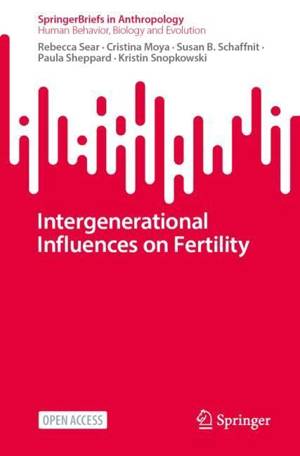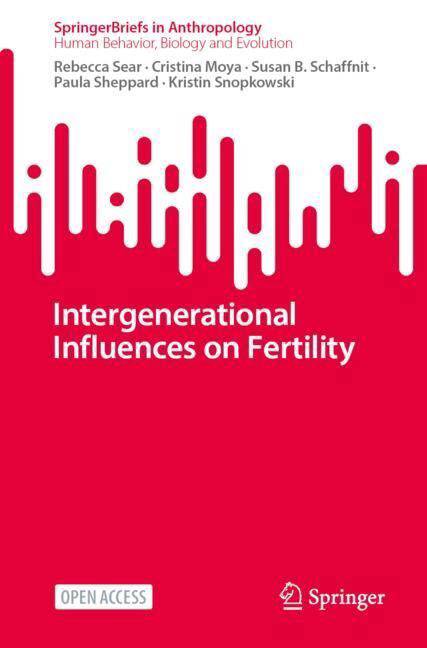
- Retrait gratuit dans votre magasin Club
- 7.000.000 titres dans notre catalogue
- Payer en toute sécurité
- Toujours un magasin près de chez vous
- Retrait gratuit dans votre magasin Club
- 7.000.0000 titres dans notre catalogue
- Payer en toute sécurité
- Toujours un magasin près de chez vous
Intergenerational Influences on Fertility
Rebecca Sear, Cristina Moya, Susan B Schaffnit, Paula Sheppard, Kristin SnopkowskiDescription
This book is open access under a CC BY-NC 4.0 license.
This book is a result of an interdisciplinary, comparative project testing the hypothesis that kin will influence fertility, incorporating demography, evolutionary biology and anthropology.
It will include a review of existing literature on the subject which will show that family does matter for fertility, sometimes, but that there is considerable variation (1) in which family members matter; (2) in which fertility outcomes are affected (inter-birth intervals, age at first birth, total fertility); and (3) cross-culturally.
The empirical studies use advanced statistical techniques to develop a greater understanding of not just whether but why family matters for fertility - are relationships between family and fertility plausibly causal, and driven by helping behavior between kin? These studies will show that positive associations between family and inter-birth intervals are sometimes plausibly driven by helping behavior between kin, particularly in lower income settings; but relationships between kin and fertility in higher income contexts are less clear-cut. Further, relationships between kin may sometimes be competitive.
In the penultimate chapter, we discuss how intergenerational conflict may influence fertility outcomes, including a comparative analysis of age at first birth across 20 lower income populations suggests.
This book will interest evolutionary anthropologists, demographers, biologists, sociologists and other social scientists with interests in family or fertility.Spécifications
Parties prenantes
- Auteur(s) :
- Editeur:
Contenu
- Nombre de pages :
- 70
- Langue:
- Anglais
- Collection :
Caractéristiques
- EAN:
- 9783319412962
- Date de parution :
- 24-04-25
- Format:
- Livre broché
- Format numérique:
- Trade paperback (VS)
- Dimensions :
- 155 mm x 235 mm







